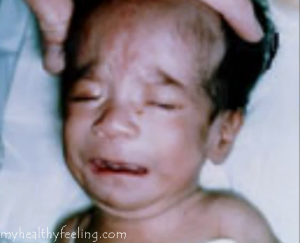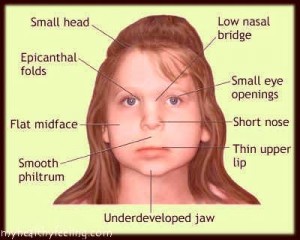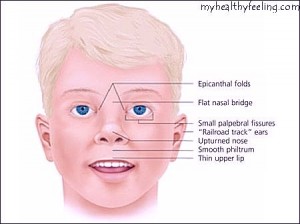When a mother drinks too much alcohol during her pregnancy, it does not just harm herself but the baby as well. Possible mental, neurological and physical birth defects may develop that would last for a lifetime. This condition is called fetal alcohol syndrome (FAS).
Cause of Fetal Alcohol Syndrome
Too much drinking especially during pregnancy puts the baby at higher risks of acquiring congenital disorders. When drinking, the alcohol content enters the bloodstream, passes down to the placenta which is eventually ingested by the developing fetus. The fetus normally cannot metabolize alcohol like adults do, so the fetus’ body contains high concentration of alcohol which affects the distribution of oxygen and nutrition throughout the body.
High consumption of alcohol during the first trimester puts the baby at greater risk of developing birth defects but this does not necessarily mean that drinking alcohol in the latter stages of pregnancy is any safer. Though in most cases, some may still not be aware that they are pregnant but it is still not an excuse for drinking heavily.
Symptoms of Fetal Alcohol Syndrome
If you have been drinking alcohol during pregnancy and are concerned on how this has affected the baby, these are the possible consequences of your actions:
• Growth deficiency
• Poor muscle coordination
• Low birth weight
• Organ dysfunction
• Developmental delay
• Facial abnormalities like flattened cheekbones, indistinct philtrum, small eye openings, small head, and thin vermilion
• Heart defects
• Poor social skills
• Learning difficulties like poor memory, difficulty in language comprehension, low problem solving skills, and difficulty in understanding time and money concepts
• Behavioral problems such as social withdrawal, anxiety, stubbornness, hyperactivity, low concentration, and impulsiveness.

Fetal Alcohol Syndrome Statistics, Facts
No amount of alcohol is safe during pregnancy and the more you drink the greater the risk is for the baby. Its effects are lifelong and irreversible. Though this condition is totally preventable, sad to say, 1 of every 750 infants in the United States are born with birth defects that are believed to be caused by Fetal Alcohol Syndrome
Long Term Effects & Possible Complications
As these children mature into adulthood, deformities may become less noticeable but symptoms may also get intensified. They are less likely to achieve anything in life and they intend to develop antisocial behavior and become more dependent specifically to their families.
Possible complications that may occur for both the mother and the baby are miscarriage and premature delivery. In some cases, FAS may also lead to infant death.
Treatment for Fetal Alcohol Syndrome
There is no cure available for Fetal Alcohol Syndrome. Once the baby had been affected, it would never be reversible and the effects will stay for a lifetime; but it doesn’t mean it’s not treatable. Treatments are available to help control the symptoms.
For mental retardation, therapies and medications are available to help the child cope with other kids. Most of the time, behavioral interventions may not always work as expected because of their impaired learning abilities; but special schools are available to help them. For heart defect problems, surgery is also an option.
No amount of alcohol is safe during pregnancy and the more you drink the greater the risk is for the baby. Its effects are lifelong and irreversible. Though this condition is totally preventable, sad to say, 1 of every 750 infants in the United States are born with birth defects that are believed to be caused by Fetal Alcohol Syndrome.
Fetal Alcohol Syndrome Pictures
Check out pictures of fetal alcohol syndrome, see how this syndrome can affect the development of children



